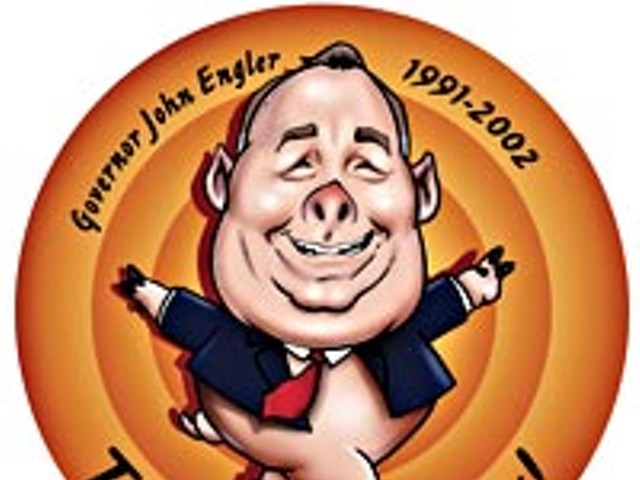Harry Hay
There's a picture of Harry Hay with his lover John Burnside taken at their home shortly before his death from lung cancer at the age of 90 earlier this year.
Hay is sitting in his wheelchair, dressed in blue jeans, Hawaiian shirt, rainbow belt, and black leather cap. One of his veined, heavy hands holds Burnside's hand in his lap. The other is lifted toward Burnside's face, palm toward the camera, his knuckles lightly brushing the cheek of his smiling, aged partner. The tubes that lead from his nose to an oxygen tank behind his chair are a painful sign that this radical, colorful, and admittedly cantankerous founder of the queer movement in America was near death.
In the photo, Hay gazes at Burnside wistfully, sadly, lovingly. It's an intensely private and gentle moment in the life of the tenacious and outspoken man who spent so much time in the public eye, trying to liberate gay men and women from the social constraints of a homophobic society.
Born in England in 1912, he was the son of a mining engineer who Hay later recalled as intensely stubborn. ("My father was a self-made man," Hay told the Progressive magazine in 1998. "He would beat me senseless. He was a Scotsman and he was stubborn. I'm his son, and I'm stubborn too.") The family spent time in South Africa and Chile before a mining accident ended his father's career and the family relocated to southern California. From the age of 11, Hay says he knew he was gay — only then, he said in interviews, there wasn't even a word in the dictionary to define what "homosexual" was. There was, however, a definition for it in the penal code.
Being gay was considered both a crime and a psychological aberration during much of Hay's activist life. In California in the 1940s, it wasn't even legal for gay men to congregate, and gay men were routinely arrested on the suspicion that they might be cruising for sex. So in 1950 Hay formed a group called the Mattachine Society, devoted to the welfare and recognition of gays. It was one of the first gay-rights (then it was more commonly referred to as "gay liberation") groups formed in the United States, and it was certainly one of the earliest — if not the only — group formed in that era that believed gay men and lesbians were a distinct cultural minority with a unique history, identity, and political agenda.
"In order to earn for ourselves any place in the sun," he wrote in 1950, "we must with perseverance and self-discipline work collectively . . . for the first-class citizenship of minorities everywhere, including ourselves."
During its earliest meetings, the Mattachine Society met secretly, and its members would often bring female family members or friends with them to meetings to act as "beards." Hay himself was married to a woman for more than 13 years (a marriage during which, he readily admitted, he had numerous affairs with men) before he finally divorced in 1951 and encouraged his gay "brothers" to come out first to one another, then the world. It was a particularly difficult time for radicals like Hay and his fellow Mattachines to take on that task: It was in the midst of the Red Scare, and the government was busy routing out what it considered to be dangerous and deviant activities, including homosexuality. "You can't hardly separate homosexuals from subversives," Sen. Kenneth Wherry of Nebraska said at the time. "People of low morality are a menace."
To make matters worse, several of the Mattachine's leaders, including Hay, were active members of the Communist Party. By 1953, a more conservative branch of the Mattachine Society, petrified of being investigated for Communist activity, ousted its leadership and distanced itself from Hay. Hay did not make a major reappearance in gay activism again until 1979, when he formed the Radical Faeries, a New Agey, in-your-face men's group based on Hay's deep-seated conviction that gay men were spiritually different than heterosexuals.
Right up until his death on Oct. 24, Hay remained a controversial figure in gay history — he was always opposed to gay marriage, openly criticized gay organizations for trying to mainstream gay culture to mirror hetero culture, and was an unabashed fan of promiscuity — though after his death, obituaries and articles about him painted him as the benevolent grandfather of the gay-rights movement. That wasn't a role Hay, a pioneer, a radical, an activist, a queer, embraced. Rather, he saw himself and his gay brothers as a force the rest of the world would have to learn to live with.
"If you have to wait until I can make it safe, OK, I'll make it safe," Hay said. "And if I have to use myself as a battering ram, I'll do that too, the best I can. But I'll tell you a deep, dark secret: Underneath that facade, I'm a terrified little sissy, just like everybody else. But I never let it show."
Almost famous - Our Annual Salute to the Late Near-Great and Unjustly Obscure Erin Sullivan writes for City Paper, where this feature first appeared. Send comments to [email protected]





